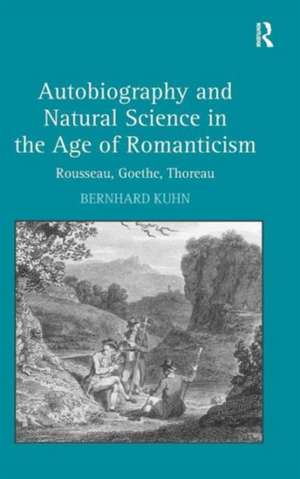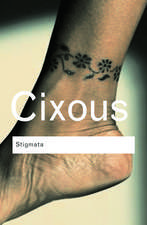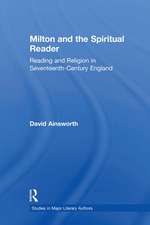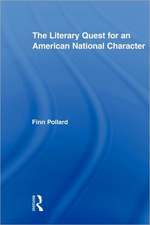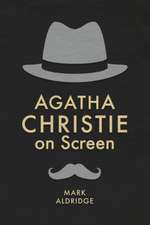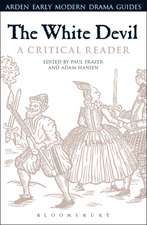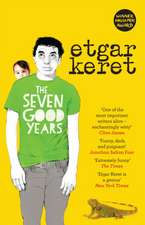Autobiography and Natural Science in the Age of Romanticism: Rousseau, Goethe, Thoreau
Autor Bernhard Kuhnen Limba Engleză Hardback – 24 aug 2009
| Toate formatele și edițiile | Preț | Express |
|---|---|---|
| Paperback (1) | 469.34 lei 6-8 săpt. | |
| Taylor & Francis – 28 noi 2016 | 469.34 lei 6-8 săpt. | |
| Hardback (1) | 1056.28 lei 6-8 săpt. | |
| Taylor & Francis – 24 aug 2009 | 1056.28 lei 6-8 săpt. |
Preț: 1056.28 lei
Preț vechi: 1288.15 lei
-18% Nou
Puncte Express: 1584
Preț estimativ în valută:
202.13€ • 208.84$ • 168.14£
202.13€ • 208.84$ • 168.14£
Carte tipărită la comandă
Livrare economică 20 martie-03 aprilie
Preluare comenzi: 021 569.72.76
Specificații
ISBN-13: 9780754661665
ISBN-10: 0754661660
Pagini: 182
Dimensiuni: 156 x 234 x 13 mm
Greutate: 0.5 kg
Ediția:1
Editura: Taylor & Francis
Colecția Routledge
Locul publicării:Oxford, United Kingdom
ISBN-10: 0754661660
Pagini: 182
Dimensiuni: 156 x 234 x 13 mm
Greutate: 0.5 kg
Ediția:1
Editura: Taylor & Francis
Colecția Routledge
Locul publicării:Oxford, United Kingdom
Notă biografică
Bernhard Kuhn is Associate Professor of English at Union College, USA.
Recenzii
'This well-conceived study puts Bernhard Kuhn in the middle of recent arguments about the nature of autobiography in Romanticism. Deftly balancing a close reading of texts with a broad understanding of Romantic culture, this book remains focused, balanced, and necessarily multi-lingual, as it moves through its detailed and subtle argument, layer-by-layer.' Larry H. Peer, Brigham Young University, USA ’Kuhn’s prose is clear and accessible, even when dealing with complex philosophical and scientific theories. The organisation of the book into smaller subsections, each with a signpost pointing to the broader thesis, ensures readability. Moving seamlessly between literary criticism and historical analysis, Kuhn offers a valuable new perspective on the cultural work of Romantic life writing as it responds to the shaping influence of socio-cultural and scientific discourse.’ British Society for Literature and Science 'This short but ambitious book makes an important contribution to our understanding of the close links between literature and science during the later eighteenth and the first half of the ninteenth century.' Biography 'Kuhn's work looks at autobiography and natural science as ever-changing modes of writing, and shows how the 'dynamic interaction' between the two discourses challenges the growing division between the humanities and the sciences, and refutes the still entrenched thesis of 'the two cultures'. The Romantic period is used to transcend some still lingering dogmatism about science and humanities in Kuhn's eloquently written book.' Centaurus 'In Autobiography and Natural Science in the Age of Romanticism, Bernhard Kuhn offers a significant and learned study of three towering figures in the history of literature and science. Kuhn is at his best in moments of inspired close reading of each author, on the one hand, and in well-grounded surveys of each writer’s very extensive corpus on the other... [Kuhn] contributes meaningfully to t
Cuprins
Chapter 1 The Nature of Identity and the Identity of Nature, Bernhard Kuhn; Chapter 2 Natural Science and the Self in Rousseau’s Confessions, Bernhard Kuhn; Chapter 3 Reveries and the “Re-enchantment” of the World, Bernhard Kuhn; Chapter 4 Goethe’s Autobiographical Science, Bernhard Kuhn; Chapter 5 Self-Formations: Order and Disorder in Poetry and Truth, Bernhard Kuhn; Chapter 6 The Metamorphosis of Thoreau, Bernhard Kuhn; Chapter 7 “Prolific Hybrids”: Walden and Thoreau’s Natural History, Bernhard Kuhn; Conclusion, Bernhard Kuhn;
Descriere
Bernhard Kuhn's study uncovers a fundamental connection between the autobiographies and scientific writings of Rousseau, Goethe, and Thoreau that refutes the now entrenched thesis of the 'two cultures.' As he examines these three representative writers, Kuhn reveals the scientific character of autobiographical writing while demonstrating the autobiographical nature of natural science. An unfolding drama emerges, in which Romantic Period writers are seen preserving what modern culture is determined to break apart.
